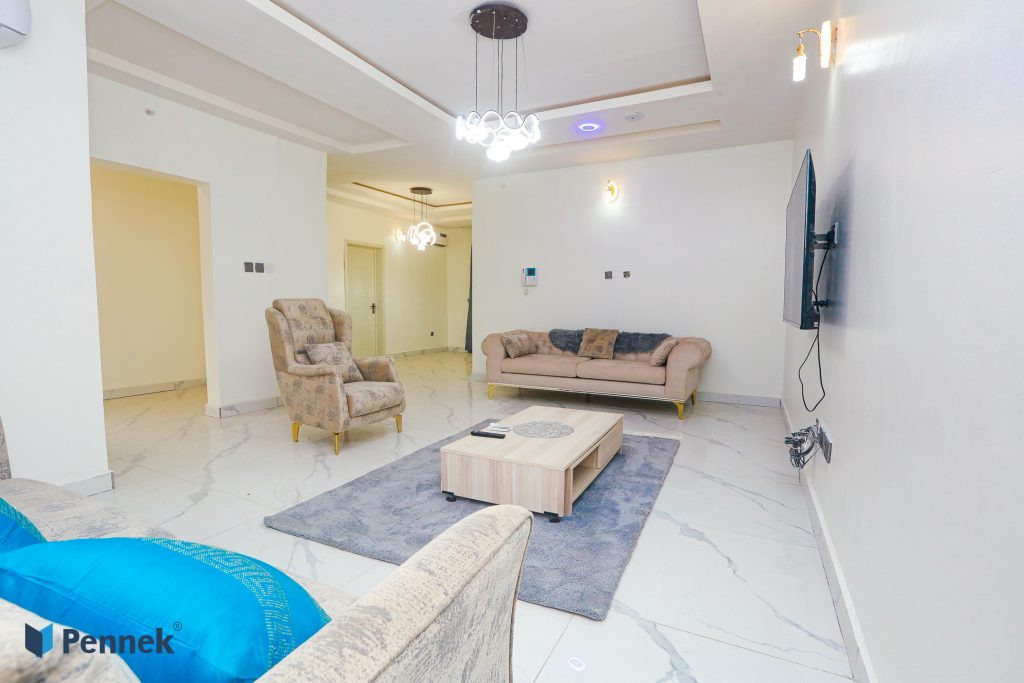Touring homes can be a thrilling experience, especially if you’re a first-time homebuyer. However, you can easily get swept away in the excitement of it all and not realize that you’re missing out on some very important details about the home. Knowing what you want before touring homes is a great start, then while you’re on home tours don’t be shy to test everything.
To help you feel more confident as you’re touring homes, we’ve broken it down for you:
- How to prepare for a home tour
- What to look for when touring a house
- Questions to ask before, during, and after a home tour
What is a home tour?
Touring homes is one of the most exciting parts of the homebuying process. A home tour is when you finally get to see those online listings in person, which will give you the best idea if a home is a right fit for you. You can either tour a home in person or you can take a virtual home tour via video chat. However, it’s always best if you’re able to see the home in person. So when you’ve found a home you’re really interested in online, schedule a tour as soon as possible.
Be sure to take notes and photos as you’re touring. Most of the time you’ll be viewing a handful of homes, so this will make it easier to remember your thoughts and the details of each home. If health guidelines allow, try everything: open and close doors, flip light switches, test out the water pressure, and don’t forget about looking at the exterior of the home.
Not every house will be perfect, so try not to get caught up in minor cosmetic details, like paint colors or hardware finishes. However, you’ll want to be on the lookout for any red flags as you’re house hunting. Your agent should be able to point out potential problems and answer your questions as you walk through the home.
If you’re touring a home virtually with your agent, much of this same advice applies, though you’re obviously limited in how you can interact with the home. The most important thing you can do is be assertive in asking your agent to investigate the home for you and answer any questions you have. Learn what to ask during a virtual tour.
How to prepare for a home tour
Before you begin touring homes, do your online research and start narrowing down your list of must-haves versus nice-to-haves. Then try to find homes to tour within your price range. Here are some things to consider before you start touring homes.
Research the neighborhood
Take a few minutes before or after your home tour to check out the neighborhood. How does the neighborhood feel? Is it bustling or is it quiet? Is there shopping, dining, and other amenities nearby? What are the schools like?
If you’re interested in making an offer on the home, you should do additional research online and ask your agent what she or he knows about the surrounding area. Also look at the home’s school rankings, Walk Score®, and Transit Score®, which can be found toward the bottom of the home’s listing page.
Floor plan, number of rooms, and room sizes
Do you prefer an open layout or do you like the differentiation between rooms in a house?
As you’re touring homes, it’s important to think about the functionality of the home’s floor plan and layout, and if it will accommodate your lifestyle.
You’ll likely determine how many bedrooms you’re looking for before you begin touring homes, but don’t forget to note the size of the rooms when you start viewing houses in person. Will the bedrooms be large enough for your kids as they get older? Will it be spacious enough to accommodate a home office? While the number of bedrooms is important, so is the square footage of each room.
How important is natural light and the direction your home faces?
If having plenty of natural light ranks high on your list of must-haves, you’ll want to take note of the amount of light each room may get throughout the day. Does the home face north or south? Typically, a south-facing home will see the most hours of sunlight throughout the day.
Do you have a preference on the style and age of the home?
Have you narrowed down the style of home you want? By browsing listings online, you’ll be able to get an idea of what home style(s) you’re most drawn to which can also help narrow down your search.
Would you prefer to buy a turnkey home that’s move-in ready? Are you looking for an older home that you can renovate or make minor upgrades? If you’re considering buying an older home, there are extra precautions you’ll want to take before putting in an offer. If the home has popcorn ceilings, you’ll want to consider the possibility of asbestos. How is the foundation? When will the roof need to be replaced next?
Outdoor features
Last but not least, you should have an idea in mind of what you’re looking for in terms of outdoor space. Do you want a large, open yard? Are you looking for an outdoor space with a pool or enough space to install one? Or are you looking for a smaller patio area that will still allow you to lounge outside but without the upkeep of a large yard?
House tour checklist: What to look for when touring a house
Once inside a home, try everything. Follow common courtesy but don’t be shy—open and shut the cupboards, flush the toilets, and whip out the measuring tape. Pay attention to stairways especially. Are the stairs comfortable to go up and down? Is there a rail? Are there any squeaks in the stairs or do they feel sturdy? Are there any turns or will the width be an issue when moving furniture? Here are a few key things to look for on each home tour:
- Architectural style
- Number, location, and size of bedrooms
- Number, location, and size of bathrooms
- Closet and storage space
- Number of floors
- Sightlines throughout the home
- General floorplan
- Age and condition of appliances
- Light switches and number of sockets in each room
- Plumbing and water pressure
- Amount of natural light and views, if any
- Noise levels inside and outside the home
- Width and types of stairways
- Porches and decks
- Garage and/or parking capacity
- Proximity to neighboring homes
- Remodeling opportunities
- Condition of roof and gutters
- Cracks in foundation and driveway
- Overgrown trees that could cause your home damage
- Signs of water damage
- Wall and floor condition such as uneven flooring, chips, or miss-matched flooring
- The age of the electrical box
- How the home is heated and cooled (i.e. oil, gas, electric)
- Possible pest infestation or other visible damage
Don’t forget about the exterior
Don’t forget to walk around the entire home and property. Pay attention to the age and condition of the roof and siding. Does the landscaping look like it will be a lot of work? If you don’t have a green thumb and don’t want to hire a gardener every month, you may want to look for a home with easy outdoor upkeep.
Take notes and photos throughout the home tour
It’s easy to get homes mixed up so take photos, videos, and notes on each tour. Take pictures of features you particularly like and dislike about each home, and share these insights with your agent. Looking through your photos and notes with fresh eyes may also trigger additional questions you have about the home.
Use your five senses when touring homes
Sight: Are there signs of water damage? Do you see mold? What does it look like under the sinks? How close are the homes next door? Can you see inside of your neighbor’s home? Is there natural light coming through or do the rooms feel dark? Is there anything of concern being covered by window dressings, rugs, etc.?
Hearing: What is the noise level like in the neighborhood? Can you hear nearby traffic noise, or is the house located near a railway? Is the interior of the home quiet or can you hear the HVAC system? Do the floors squeak?
Smell: Can you smell any odors from the carpet, such as animal odors? Do the bathrooms smell of mildew? Do the rooms smell over-sanitized with artificial fragrances? Does it smell like fresh paint?
Touch: What is the water pressure and temperature like? Do any of the walls feel damp, particularly in the bathrooms? Do the floors feel level? Is the tile slippery? Are the heated floors actually heated?
Taste: What does the tap water taste like?
Questions to ask your realtor when looking at a house
Agents tour homes every day. Pick your agent’s brain for any unique qualities that stand out or flaws that you could be unaware of. If your agent doesn’t know the answer to a question, she or he can always ask the seller’s agent later. Here are a few common questions to ask your agent:
- What do you like about the home?
- Do you have any concerns about this home?
- Is the home priced reasonably?
- How long has this home been on the market?
- When are offers due?
- How many offers have been made?
- Do you think the home will sell quickly?
- Why is the home for sale?
- How old is the home?
- Is the home located in a flood zone?
- What home improvements did the sellers make?
- Are any repairs needed?
- What type of heating and cooling systems are in place?
- How old is the electrical and plumbing?
- How old is the roof?
- When were the floors last refinished?
- What’s included in the home sale (like appliances)?
- Can you see a copy of the current owner’s utilities?
- Is there a homeowner’s association with fees?
- How old are the appliances?
- Is there a pre-listing home inspection?
- How often has the home been sold in the last 10 years?
Red flags to look for when touring a house
While you should be looking for home features that check off your boxes, you should also be looking for red flags as you tour a house. These are a few potential red flags you should be aware of and pay close attention to during home tours:
- Overly-scented rooms – If there’s an overpowering fragrance, this could indicate that the seller is attempting to mask an odor. Be sure to investigate further for signs of pet odor, mildew, and so on.
- Water stains and damage – If you notice any water stains, there’s a chance that there’s underlying water damage to the home, which could lead to costly repairs later on. You’ll want to take note of this and point it out during the inspection if you decide to submit an offer.
- A lack of maintenance – Be on the lookout for any signs that the homeowner has neglected regular maintenance, such as burnt-out lightbulbs, fading paint, and leaking faucets. If they didn’t upkeep these smaller items, imagine what larger issues have been avoided.
- Foundation issues – Are doors and windows difficult to open? Are there any noticeable cracks around doorways or windows? These could be indicators of underlying problems with the foundation.
- A sagging ceiling – If you notice the ceiling is sagging, this is an indication that there’s a larger structural problem.
- Fresh paint – While it’s normal for a seller to freshen up their home with paint before selling, if there’s only one wall that’s been painted or it feels out of place, trust your gut. This could be a sign they’re trying to cover up an issue.
Conclusion
Homebuying takes plenty of compromise and patience. It’s easy to fall in love with a home at first sight—and if you love a home, chances are everyone else will too. This isn’t necessarily a bad thing, but just realize that you may be up against some competition. Be prepared to make multiple offers before you find the right home at the right price.
If homes in your market tend to sell well over list price, keep that point in mind while you search for homes. Also, stick to your budget when you make an offer. By the time most buyers find out that a home with a low list price will sell for a lot more, they are typically already invested and are willing to bid up to “win” the home. Don’t overlook any red flags just because your heart is set on a home, though. You may not think something is a big issue now, but could be a potential health risk later on or lead to costly repairs.




